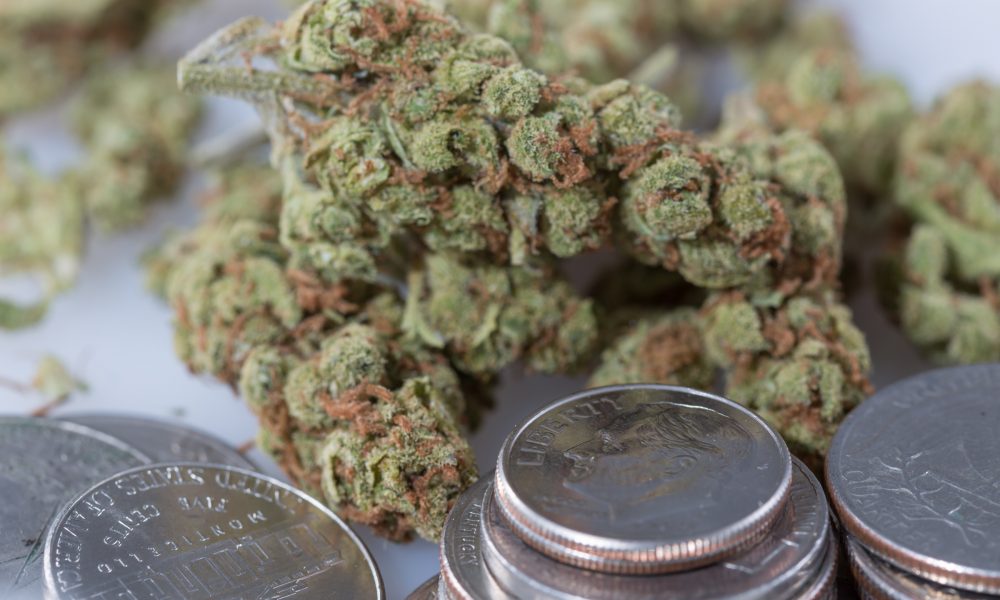Congressional researchers are acknowledging that the lack of banking access for state-legal marijuana businesses leads them to be “heavily reliant on cash transactions, making them a target for theft.” But they are also raising questions about whether it makes sense for lawmakers to pass legislation protecting banks that service the industry “when other participants in cannabis markets continue to be exposed to prosecution under federal law.”
In a report on Federal Reserve policy that was published by the Congressional Research Service (CRS) on Tuesday, experts examined the unique financial issues that afflict the cannabis industry and discussed one potential bipartisan solution: the Secure and Fair Enforcement Regulation (SAFER) Banking Act.
“Many states have legalized marijuana, whereas it remains a Schedule I controlled substance under federal law,” CRS said. “As a result, it is a federal crime to grow, sell, or possess the drug. This disparity has implications for banks offering financial services to cannabis businesses that are legal under state law.”
“Potential punishments for [anti-money laundering] violations and other violations of federal law leave some banks leery of offering financial services to cannabis businesses operating in compliance with state law,” the report said. “If cannabis businesses are unable to access traditional financial services, they may face higher borrowing costs and may be heavily reliant on cash transactions, making them a target for theft.”
CRS pointed out that the Senate Banking Committee passed the SAFER Banking Act last September, but the measure is pending action on the floor. Earlier versions have cleared the House in some form at least seven times in recent sessions.
“Among other things, the bill would prevent regulators from penalizing banks solely for offering banking services to cannabis businesses operating in compliance with state law,” it said. “It would also provide legal protection to the Fed and its employees in providing services, such as payment services, to banks serving cannabis businesses operating in compliance with state law and allow the Fed to accept loans to cannabis firms as collateral at the discount window.”
Further, the report outlined three policy issues that they’re advising lawmakers to take into account:
- Should banking services be made available for businesses engaged in an activity that is legal under state law and illegal under federal law?
- Have cannabis businesses been harmed by federal barriers to banking access? Have these barriers operated in practice as an effective deterrent to the legal use of marijuana under state law?
- Is a legal safe harbor to banks providing services to cannabis businesses justified absent a broader reform of federal cannabis laws? In other words, should banks be singled out for legal protection when other participants in cannabis markets continue to be exposed to prosecution under federal law?
Meanwhile, Senate Majority Leader Chuck Schumer (D-NY) said in late December that lawmakers will “hit the ground running” in 2024, aiming to build on bipartisan progress on several key issues, including marijuana banking reform—though he noted it “won’t be easy.”
If the SAFER Banking Act does make it to the Senate floor this year, it’s expected to be amended. For example, Schumer has discussed the “moral responsibility” of further amending it to add provisions on state-legal cannabis expungements and gun rights for cannabis consumers.
For what it’s worth, a survey released late last year revealed that 71 percent of top Capitol Hill staff feel it’s “unlikely” that lawmakers will pass any type of cannabis reform, including the banking legislation, in the 118th Congress that ends this time next year.
European Union Commission Clears Transnational Medical Marijuana And Research Initiative For Signature Gathering
Read the full article here

